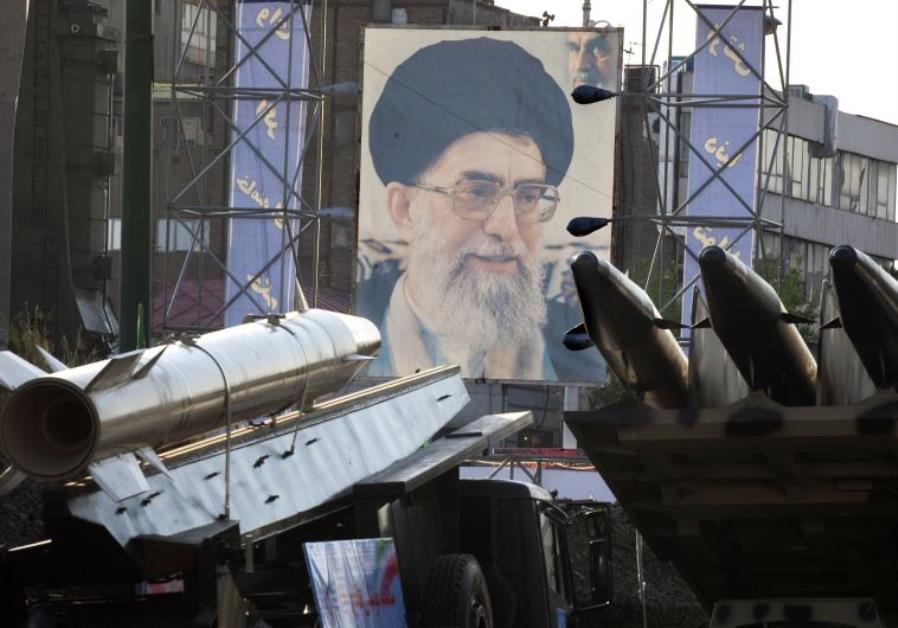Analysis/Iran’s Attack on U.S. Drone Is Just a Preview of What’s to Come in Mideast
عاموس هاريل/الهآرتس: الهجوم الإيراني على الطائرة الأمريكية بدون طيار هو مجرد عرض مسبق لما سيحدث في الشرق الأوسط
Amos Harel/Haaretz/June 24/2019
Aborting the retaliatory strike is praise-worthy, but it doesn’t seem to have convinced Tehran that it’s better off stopping its provocations.
U.S. President Donald Trump’s about-face in deciding not to attack Iran in response to its downing of an American drone isn’t the beginning of the end of the Gulf crisis. It isn’t even the end of the beginning.
Iranian attacks on targets belonging to America’s allies in the Middle East (and in the case of the drone, an American target) haven’t achieved their goal yet. On the other hand, Tehran also hasn’t received a resounding lesson about the costs of its actions.
Therefore, it’s very possible that such Iranian actions will continue, either via satellite organizations like the Houthis in Yemen or Shi’ite militias in Iraq, or by the Revolutionary Guards themselves, albeit without officially claiming responsibility.
The praise Trump won for refraining from escalating the situation is justified, but it didn’t solve the problem at the heart of the crisis. Tehran wants to force Washington to ease the economic sanctions against it. But Washington is conditioning this on a return to negotiations over a new version of the nuclear deal, which would impose much more stringent terms on the Iranians.
This is a gap that currently seems difficult to bridge. And in the absence of a solution, Iran will presumably continue to apply pressure, possibly in the near future.
Iran clearly doesn’t want a war. Though a war wouldn’t obliterate it, as Trump threatened over the weekend, the balance of forces doesn’t favor the Islamic Republic. Yet nothing the U.S. administration has done to date seems to have convinced the Iranians that they’d be better off stopping their provocations.
In his statements to the media after aborting the attack, Trump presented his decision as choice between two options: approving a strike on Iran’s aerial defense system that the Pentagon predicted would have killed around 150 people, or scrapping it. But in reality, the Americans have a broader range of choices.
On Saturday, the president threatened on Twitter to impose additional, unspecified sanctions on Iran. Perhaps he meant that the sanctions would be imposed in response to Iran’s declared intent to exceed the permitted ceiling on its stockpile of low-enriched uranium in a few days. America’s restraint, as reflected in the decision not to bomb Iran, may pay off when it needs to recruit parts of the international community to support its position.
On Monday, at the Americans’ request, the UN Security Council will hold a closed session on Iran’s conduct. It will be easier to obtain widespread agreement, particularly with European countries, if Washington isn’t suspected of deliberately escalating the situation.
Trump’s threats against Iran have been accompanied by carrots. But with him, it’s hard to know whether this is an orderly plan or just improvisation. In a conversation with journalists over the weekend, the president said he is open to reaching a quick deal with Iran that would rescue its economy from crisis. “Let’s make Iran great again,” he added, riffing on his successful campaign slogan.
But early Sunday morning, the Washington Post reported that instead of the aborted kinetic strike on Iran, Trump ordered a cyberattack against its missile command systems. Another cyberattack targeted the Iranian intelligence unit behind the attacks on oil tankers in the Persian Gulf. This leak was presumably meant to somewhat compensate for the damage to Trump’s image caused by his decision not to attack, as well as responding to critics’ charges that this decision undermined America’s deterrence in the region.
So far, there have been no reports on how much damage these cyberattacks caused. In the past, it took months or even years for such information to emerge.
Russia has made major use of offensive cyberweapons over the last decade, including against Georgia, the Baltic states and Turkey. The Iranians also haven’t refrained from such attacks – albeit on a smaller scale – and the United States and Israel developed the Stuxnet virus to disrupt the progress of Iran’s nuclear program early in the decade.
Trump’s national security adviser, John Bolton, is currently in Israel ahead of a summit with his Israeli and Russian counterparts. At a joint press conference in Jerusalem with Prime Minister Benjamin Netanyahu, Bolton – who is considered the administration’s most hawkish member, especially regarding Iran – warned Tehran not to “mistake U.S. prudence and discretion for weakness.” The American army is ready for action, he added, and Iran will never obtain nuclear weapons.
But opposition to war with Iran isn’t coming only from the Democrats, who don’t believe a word the president says. Trump himself has expressed hindsight opposition to the United States’ military entanglements in Iraq and Afghanistan.
And according to media reports, Trump’s decision this weekend was influenced by right-wing television host Tucker Carlson of Fox News, who warned that a war could undermine Trump’s hopes of winning reelection next year. Isolationist sentiment is strong among parts of the Republican electorate, too.
Perhaps the Americans have already found a way to talk discreetly with the Iranians, even amid the ongoing crisis. But without negotiations between the parties and an easing of the sanctions, Iran will presumably continue to sting the Americans, possibly in the near future.
The tension in the Gulf is liable to overshadow the economic workshop in Bahrain later this week, an event the president’s peace team has spent months planning. The Israeli journalists heading to Bahrain may yet find themselves reporting more on the latest events in the Gulf than on promises to invest huge amounts of money in the Palestinians.






















